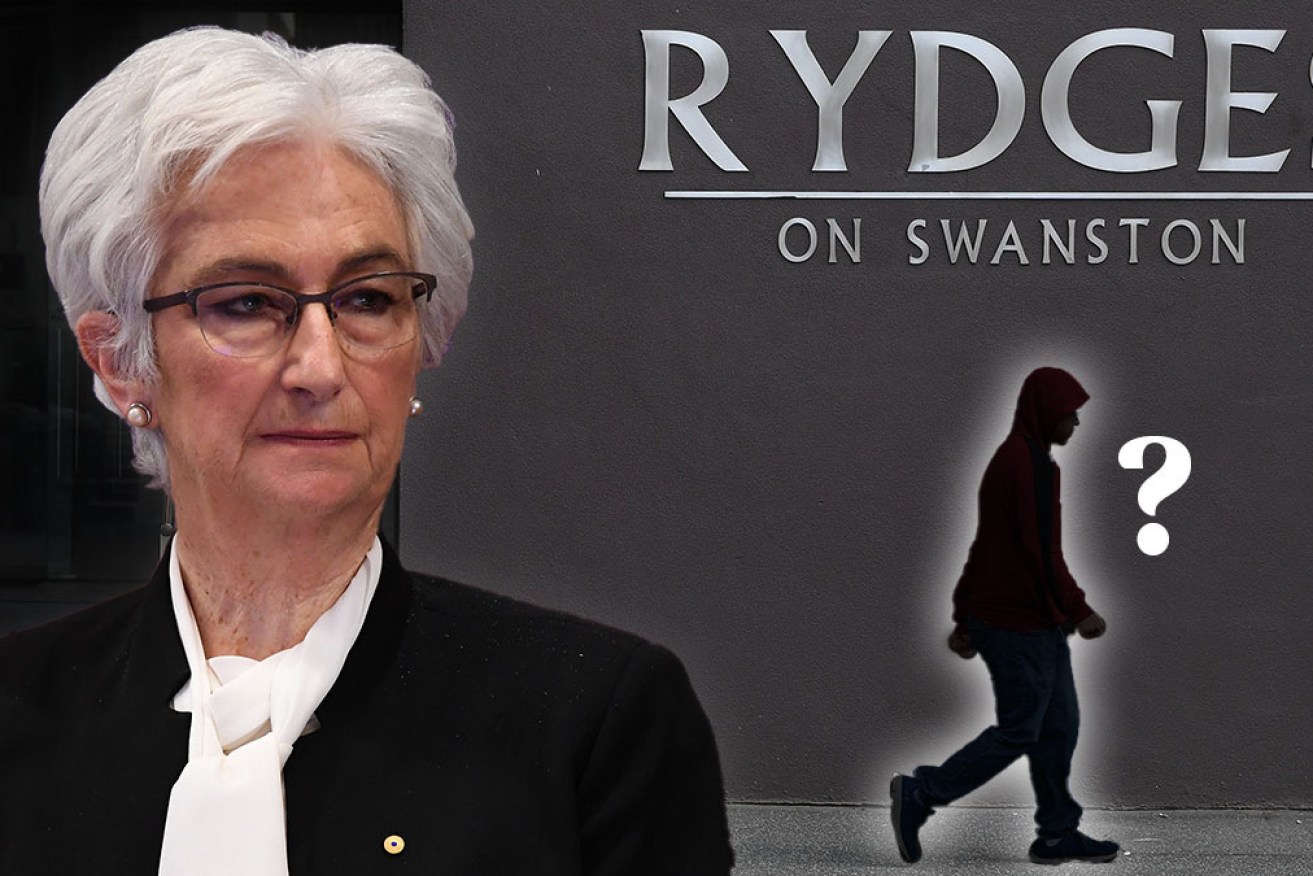COVID quarantine hotel sex: The rumour that triggered Victoria’s tidal wave of consequences


Jennifer Coate made the recommendations on Friday. Graphic; TND
It is the unconfirmed rumour that’s had a raft of serious consequences for Victorians.
A “quarantine hotel insider” article by the Herald Sun in July claimed the state’s COVID-19 second wave was caused by a hotel security guard having “inappropriate relations” with a returning traveller in quarantine.
Other allegations included ignoring infection protocols, rostering skeleton staff who mixed inappropriately with one another in small spaces.
And like wildfire, that was it.
The report spurred the shut down of Victoria’s coronavirus hotel quarantine program, triggered an inquiry into the scheme, and this week saw the state and federal governments wage a war of words against each other.
But on Thursday, cross-town rival The Age made its own claims, stating the so-called “patient zero” was not a security guard, but a hotel manager at Rydges Melbourne.

Victoria’s quarantine hotel failures have sparked a war of words. Collage: The New Daily
Now those assertions are also under the microscope, with Rydges vigorously defending its reputation, and its staff.
“While it has been widely reported in the media today that a staff member tested positive on 25 May 2020, we wish to clarify that colleagues and family contacts of the staff member all tested negative, with the staff member isolating immediately upon getting tested,” a spokesperson for the hotel said on Friday.
The rumour that became a report
It’s been picked up by everyone from some of Australia’s best political analysts, including the ABC’s Laura Tingle, who told Late Night Live: “Somehow this virus escaped … It looks like it all came from one hotel, and a few security guards having a good time” to the Betoota Advocate which wrote that the outbreak was “linked to guards making tender love to Aspen ski bunnies, a new inquiry has found.”
In a memorable moment from June, ABC host Virginia Trioli tweeted “Well I sure hope those security guards had their fun because they utterly f***ed us too” accompanied by a photo of a wine glass.
Australia’s Minister for Health, Greg Hunt even weighed in. When asked what he made of allegations that security officers were sleeping with guests in quarantine, Mr Hunt said: “If those statements are true, that would be completely and utterly unacceptable.”
“We would encourage the Victorian authorities to throw the book at them if any of these individuals or the firms have behaved inappropriately.”
On July 1 Premier Daniel Andrews told media that hotel security staff breached infection control protocols.

On July 1, Premier Andrews revealed that hotel staff had breached protocol. Photo: AAP
“Clearly there has been a failure in the operation of this program,” he said.
And Victoria’s Deputy Chief Health Officer Annaliese van Diemen previously admitted there had been breaches of physical-distancing measures.
“There’s been some closer mingling than we would have liked of these guards in the workplace,” she said.
“There’s a large cohort of security guards and workers and, unfortunately, it does appear that quite a few of them have worked for single or multiple days whilst infectious.”
Opposition health spokeswoman Georgie Crozier said the inquiry into the “scandal-ridden” and “shambolic” program was overdue.
So what went wrong?
We know something went wrong, but exactly what that was at this point is anyone’s guess.
Playing the blame game with guards, when we don’t know what exactly happened in the hotels, is pointless, said Catherine Bennett, the chair of epidemiology at Deakin University.
“To me, it shows the parts of the hotels the security guards are working are a bit like the other high-risk places,” Ms Bennett said.
“They’re high risk because the chance of having no positive travellers is low.
“They’re in an exposed environment. Even if everyone was observing their hygiene, there are some environments that it’s going to be hard.
“That’s what the inquiry will look into.”
She said people had been quick to blame the guards because we know the outbreak started there, but that doesn’t mean they necessarily did anything wrong.
“In a sense, it doesn’t matter who the index case was. It spread very quickly among staff, who then simultaneously took it home. It shifts the conversation to perhaps some broader issue as to whether they could be provided more safety.
“There’s no suggestion the index case necessarily did anything outside of what was expected. The environment was conducive to that sort of transmission.”
Professor emeritus Gerry Fitzgerald, a public health expert at the Queensland University of Technology and a former chief health officer said the bottom line is that COVID-19 is highly infectious and excruciatingly hard to control.

The hotel quarantine outbreak is now the subject of an official inquiry chaired by former coroner Jenny Coate.
“The reality is, even in health services and all of their training and equipment, there are occasional breaches. It could be as simple as you grab the masks to take it off, but you grab it from the outside,” Professor Fitzgerald said.
“It is highly infectious … and controlling it is a very difficult and complex task for people who are untrained, and it has serious consequences.”
“Now we have to learn from this. We have to understand it is difficult.
“We need some simple things in place and every clear instruction: you must keep your distance; you must wash your hands; people in quarantine must be considered as if they are infectious.
“Certainly, better training and advice to the people who are doing these things will help.
Professor Fitzgerald said the inquiry was a good opportunity to review what went wrong in the program, but that gossiping about hotel guards having sex had only been a distraction.
“It distracts from the issue because the problem is with disasters, everybody wants someone to blame. And sometimes it is bad luck. The best thing you can do is minimise the risk.”








